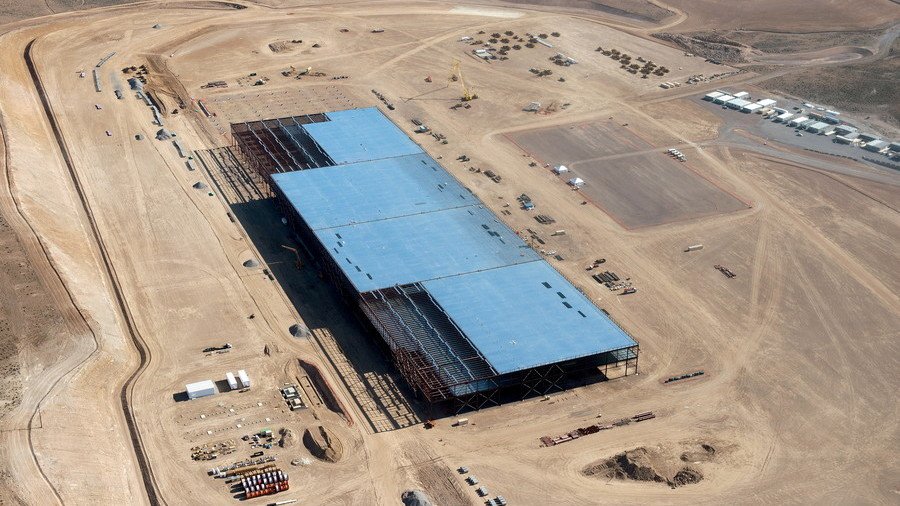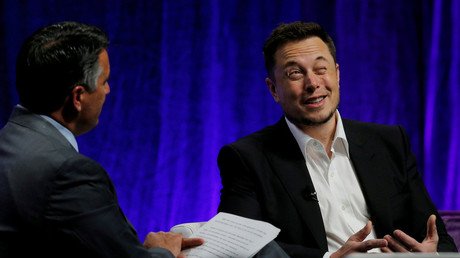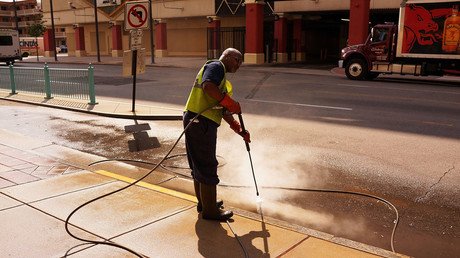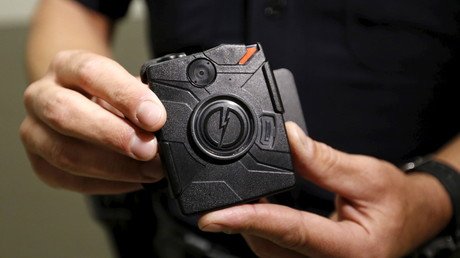Punctured batteries, massive waste: Whistleblower accuses Tesla of sloppy production (PHOTOS)

A former Tesla technician took to Twitter to detail what he says is extensive evidence of malpractice and waste at the electric carmaker’s factories, and potentially deadly battery defects in its cars.
Martin Tripp is a former Tesla technician who used to work in the electric carmaker’s dystopian-sounding Gigafactory 1 battery plant in Nevada. Tripp leaked information about the inner workings of the factory to the press in June, which he claimed was pumping out defective batteries.
On Wednesday, he unleashed a salvo of similar accusations via Twitter, complete with photos.
“Are you ready?” Tripp tweeted, before unloading the barrage of allegations, starting with a list of Vehicle Identification Numbers (VIN). He claimed that vehicles bearing these numbers contain punctured battery modules. Punctured modules can explode or catch fire, as was the case earlier this year when a Tesla Model S appeared to spontaneously combust hours after crashing headlong into a truck on a California highway.
Are any of these VIN's YOUR car? If so, you have a module(s) that IS punctured/dented/damaged. #TSLA#TSLAQ@elonmusk (Subsidy Fraud-Boy) pic.twitter.com/pOZWDeeXcO
— Martin Tripp (@trippedover) August 15, 2018
Tripp claimed that damaged battery modules are re-worked, their puncture holes sealed with glue, and then shipped off to another factory to be placed into a car.
Here's what this AR622 Containment looks like #TSLA#TSLAQpic.twitter.com/VxygBBXJ7J
— Martin Tripp (@trippedover) August 15, 2018
Here's what many of your M3 modules look like before and after, because they are generally reworked! Aren't they beautiful? pic.twitter.com/QyoM0K2ozf
— Martin Tripp (@trippedover) August 15, 2018
These are cooling tubes that 'should' be straight...nah, we can use them all bent! pic.twitter.com/1bMbHrgLVR
— Martin Tripp (@trippedover) August 15, 2018
The battery modules used in the Model 3 are comprised of thousands of smaller lithium-ion battery cells, joined together along cooling ribbons to form ‘bandoliers.’ Seven of these bandoliers are then joined together to form a module, with four modules powering one car.
According to Tripp, producing these bandoliers is a wasteful process. The former technician claimed that between 450 and 750 bandoliers are scrapped every shift - roughly 67,000 to 112,000 individual battery cells. In addition, instead of being stored in climate-controlled warehouses, as Tesla claims - these scrapped bandoliers are left in rows of semi trailers, sitting in the factory’s parking lot.
What's that? A sea of SCRAP bandoliers? Oh wait, this was just in ONE hour! 400-750 scrapped every shift! pic.twitter.com/bNzueiXQUT
— Martin Tripp (@trippedover) August 15, 2018
Hmmm.. #TSLA commented several times that all their scrap/waste is being stored in climate controlled warehouses...could this be true?! Let these pics speak for themselves: HUNDREDS of trailers at the new parking lot at GF1... pic.twitter.com/4Agz80j5Ow
— Martin Tripp (@trippedover) August 15, 2018
and more! pic.twitter.com/FUaRjNQNLA
— Martin Tripp (@trippedover) August 15, 2018
Tripp has been engaged in a high-profile legal battle with Tesla for several months. He claims that he brought these issues up with factory management, and with Musk himself, only to find his concerns ignored and the issues unsolved.
After Tripp was accused by Tesla of “sabotage” and stealing trade secrets in a June lawsuit, the former technician countersued last month, alleging that Tesla leveled false accusations of sabotage at him in an internal email, defamed him by describing him as a disgruntled employee who acted out because “he wanted a promotion he did not receive,” and told several news outlets that he had threatened to come to the factory and “shoot up the place” - a claim that Tripp vehemently denies.
Tripp took his defamation suit seriously, enlisting attorneys Robert Mitchell and Will Fischbach of Meissner Associates, famed for winning a $22.5 million judgement for a whistleblower who blew the lid on financial fraud at agri-giant Monsanto.
The malpractice alleged by Tripp all occurred while Tesla was struggling to meet production targets on its midrange Model 3 sedan. Under pressure to curb years of losses, Tesla had ramped up production, first to 2,500 vehicles per week in March, and then to 5,000 per week in June. Employees complained that meeting production targets came at the expense of mandatory overtime and slackened safety standards.
Citing a desire to avoid fluctuating stock prices and to relieve the pressure of delivering earnings reports to shareholders, Musk tweeted earlier this month that the was considering taking Tesla private. This Tuesday, the mercurial billionaire went a step further, announcing that he is working with a variety of firms, including Silver Lake and Goldman Sachs, to make this happen.
Later on Thursday, Stuart D. Meissner, whose group Meissner Associates represents Tripp, wrote that he had advised the whistleblower “to terminate his Twitter account.”
Mr. Tripp's Linked-in Account was hacked last week. I understand his Facebook account and Drop Box account as well. As a result, along with yesterday, he has determined upon my advice to Terminate his Twitter Account. I think the concern will become clearer as the day goes on.
— Stuart D. Meissner (@StuartMeissner) August 16, 2018
Think your friends would be interested? Share this story!















